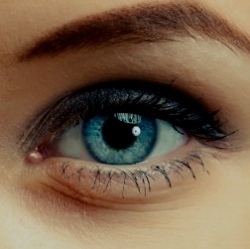
A genetic therapy has improved the vision of patients who would otherwise have gone blind. A clinical study has shown that the improvement is long-lasting and so the therapy is suitable to be offered as a treatment. The researchers will apply for approval to begin trials to treat more common forms of blindness next year.
The therapy involve injecting working copy of the gene into the back of the eyes to help cells regenerate. The results of the therapy, published in the New England Journal of Medicine, have been tried out on 14 patients in the UK and 18 in the US, Canada and Germany over the past four and a half years.
A team at Oxford University is treating a rare disorder called choroideremia. The disorder affects young men whose light-detecting cells in the backs of their eyes are dying because they have inherited a faulty gene.
Until now, there has been no treatment and they gradually become blind. The researchers found that not only does the treatment halt the disease, it revives some of the dying cells and improves the patient’s vision, in some cases markedly.
